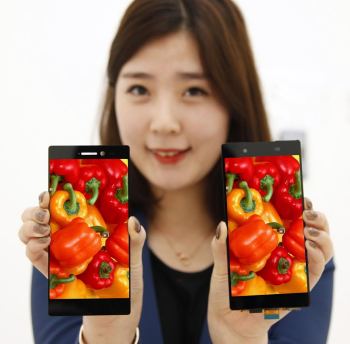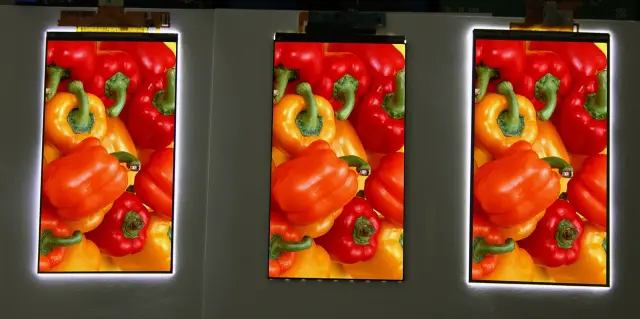
You can barely see the bezel on LG’s latest display
LG Display has announced a remarkable achievement for folks who can’t stand those annoying black bars bordering their screens. The company has developed a 5.3-inch full HD LCD panel that has a bezel width of 0.7mm, which is said to be thinner than the width of a standard credit card.
That mark gives them the title of thinnest bezel in the industry, and there are some pretty darn thin ones out there. LG gave us a pretty good rundown of how they were able to achieve the feat:
To realize the 0.7mm bezel width on the left and right sides of the panel, which is narrower than the 0.8mm thickness of a credit card, LG Display used its “Neo Edge” module processing technology and the world’s first “Advanced In-Cell Touch (AIT)” technology.
LG Display’s Neo Edge technology uses an adhesive instead of double-sided tape to attach and completely seal the total area and edges of the panel’s circuit board and backlight unit. Because there is no plastic guide panel to attach the panel and backlight, the Neo Edge technology helps achieve minimal bezel width, while blocking light leakage and being waterproof and dustproof.
The adhesive seal also prevents corrosion that sometimes occurs along the edge of the glass panel when double-sided tape is used, while dramatically improving the panel’s durability despite the narrow bezel because of increased elasticity as the adhesive hardens.
The company’s AIT technology, exclusively developed by LG Display, reduces the need for bezel space because the touch panel is embedded into the LCD module. The technology offers a slim design and excellent touch, while saving costs since a separate process for touch functions is not required.
LG’s all set to begin mass production of the display this November, with Chinese markets set to get first dibs on distribution (mainly due to the advent of demand for displays by many of the country’s up-and-coming OEMs). LG says they’ll also be promoting it and shopping it out on a global scale to anyone finding themselves in need of such a display.
We imagine the company will eventually want to get one of these things loaded up into their own smartphones, though they certainly aren’t talking about any possible internal uses today.


